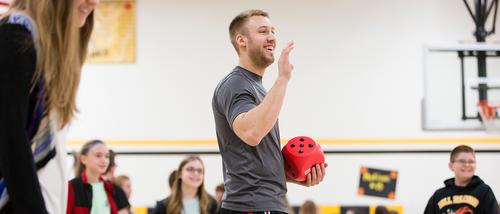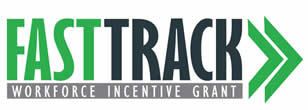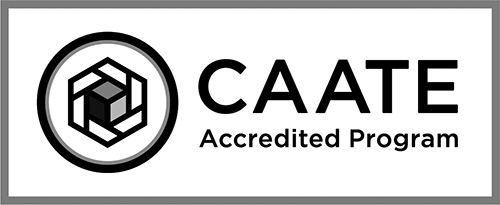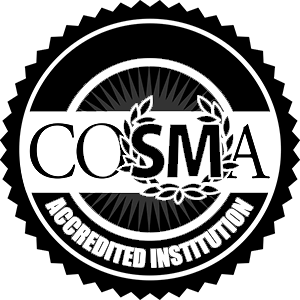Physical Education Degree
Continue to main content
Physical Education Degree Map
Explore the courses you'll need to complete your degree
Physical Education Degree Outcomes & Jobs
-
$69k
Elementary & Secondary Teacher
According to the Bureau of Labor Statistics, the mean annual salary for an elementary and secondary school teacher is $69,480.
-
$46k
Athletic Coach
According to the Bureau of Labor Statistics, the mean annual salary for an athletic coach is $45,920.
-
$63k
Middle School Teacher
According to the Bureau of Labor Statistics, the mean annual salary for a Middle school teacher is $62,970.
In your physical education degree, you’ll learn in unique courses such as Children’s Physical Education, Rhythms and Play, and Adapted Physical Education. You’ll complete a minimum of 120 credit hours to complete this degree, including the general education requirements and at least 39 senior division hours.
Education Courses- 41 Hours Required
A grade of ‘C’ or better is required in education courses, with the exception of ED280 which requires a grade of ‘B’ or better.
- ED280 Introduction to Education as a Profession (3)
- EF400 Student Teaching Seminar (1)
- EX390 Psychology and Education of the Exceptional Child (3)
- PY222 Development of the Adolescent (3)
- SE307 Reading/Writing in the Content Area (3)
- SE321 Techniques of Teaching Physical Education (3)
- SE350 Pedagogy 1: Principles of Effective Teaching (3)
- SE355 Field Experience II (3)
- SE365 Pedagogy 2: Secondary School – Interdisciplinary Methods & Technologies (4)
- SE380 Advanced Field Experience (3)
- SE385 Pedagogy 3: Middle and Secondary Education Methods of Secondary Teaching (3)
- SE465 Student Teaching (12)
Physical Education – 56 Hour Major - No Minor Required
- AT130 Dance for Aerobic Fitness (1)
- BS113 Anatomy and Physiology I (4)
- FN235 Nutrition for Health (3)
- HL231 Fitness Conditioning (3)
- PE201 Sport and Society (3)
- PE216 Theory & Practice of Team Sports (3)
- PE217 Theory and Practice of Individual/Dual Lifetime Activities (3)
- PE220 First Aid (2)
- PE235 Psychology of Coaching & Human Performance (3)
- PE238 Foundations, History and Philosophy of Physical Education (3)
- PE239 Teaching Children Physical Education (3)
- PE240 Rhythm, Plays & Games (2)
- PE261 Concepts of Injury Management in Physical Education (3)
- PE263 Injury Management in Physical Education Lab (1)
- PE305 Motor Development & Learning (3)
- PE310 Assessment for Physical Educators (3)
- PE315 Methods in Middle School PE (3)
- PE341 Physiology of Conditioning (3)
- PE408 Physical Education for Individuals with Disabilities (3)
- PE464 Kinesiology (3)
"Critical Courses" are italicized and bolded. These courses are indicators of potential for success in the degree program.
Some requirements may be fulfilled by coursework in major program.
- Social and Behavioral Sciences – 6 hours
- Constitution Requirement – 3 hours
- Written Communication – 6 hours
- Oral Communication – 3 hours
- Natural Sciences – 7 hours (from two disciplines, one to include a lab)
- Mathematics – 3 hours
- Humanities & Fine Arts – 9 hours (from at least two disciplines)
- Additional requirements – 5 hours (to include UI100 for native students)
- Civics examination
First Year
Fall Semester (16 Hours)
- UI100 (1)
- EN100 (3)
- PE201 (3)
- PE216 (3)
- General Education (3)
- General Education (3)
Spring Semester (18 Hours)
- FN235 (3)
- PE217 (3)
- PE238 (3)
- General Education (3)
- General Education (3)
- General Education (3)
Milestone: Complete MEP
Second Year
Fall Semester (18 Hours)
- AT130 (1)
- HL231 (3)
- PE220 (2)
- PE239 (3)
- PE240 (3)
- PY222 (3)
- General Education (3)
Spring Semester (16 Hours)
- BS113/013 (4)
- ED280 (3)
- PE235 (3)
- PE315 (3)
- General Education (3)
- General Education (3)
Milestone: Admission to the Teacher Preparation Program
Third Year
Fall Semester (16 Hours)
Literacy Block
- EX390 (3)
- PE261 (3)
- PE263 (1)
- PE305 (3)
- SE350 (3)
- General Education (3)
Spring Semester (19 Hours)
Content Block
- PE310 (3)
- PE341 (3)
- PE408 (3)
- SE307 (3)
- SE355 (3)
- SE365 (4)
Fourth Year
Fall Semester (12 Hours)
Advanced Block
- PE464 (3)
- SE321 (3)
- SE380 (3)
- SE385 (3)
Spring Semester (13 Hours)
Student Teaching Block
- EF400 (1)
- SE465 (12)
Milestone: Passing score Mo Content Exam, passing score on MEES, 3.0 GPA in Education and content courses.
A “Milestone” signifies a significant stage for a student in the completion of a degree.
What will it cost?
Get Funding for Your Education
Missouri’s opened the door to a more educated workforce. We want to help you walk through it. If you’re an adult learner and a Missouri resident returning to college, learn about the Fast Track Workforce Incentive Grant. It’s a statewide financial aid program that can be used to pursue a certificate, degree or industry-recognized credential in a high need area in Missouri. This major is eligible for the Fast Track grant.
Learning Communities
Another big benefit of the education program at Southeast is the opportunity to live in the Tomorrow’s Teachers Learning Community which links cohort living and learning opportunities, meaning you’ll be in the same residence hall with students in your classes from your major.
Become a Redhawk.
Do more than dream about the future. Take the first steps to make it all happen.
Out of State Certification
Completion of this program allows you to be eligible to apply for an education certification in the state of Missouri through the Department of Elementary and Secondary Education (DESE). It is not certain if it leads to certification in other states. The U.S. Department of Education has contact information available for each state's licensure agencies.
Cape Girardeau, Missouri 63701









